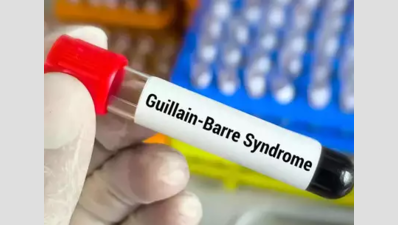Mumbai GBS Death: Mumbai reports first Guillain Barre Syndrome death, Maharashtra toll rises to 8 | Mumbai News – The Times of India

MUMBAI: A civic hospital employee succumbed to complications due to Guillain-Barré Syndrome (GBS), a neurological disorder that usually follows a bacterial or viral infection, on Monday (Feb 10) after spending nearly three weeks in the hospital.
The patient had visited Pune a fortnight before being admitted to the BMC-run Nair Hospital near Mumbai Central railway station on Jan 23. Pune has been witnessing a rare outbreak of GBS, most likely due to a bacteria found in water.
The patient, a 53-year-old operation theatre attendant from V N Desai Hospital in Santacruz, was admitted to the super-specialty Nair Hospital on Jan 23 after experiencing weakness in his legs. However, he soon developed respiratory problems and had to be put on ventilator support.
The hospital is also treating another GBS patient, a 16-year-old girl from neighboring Palghar district, who is currently “stable,” said Nair Hospital dean Dr. S Mohite.
Regarding the male victim, Dr. Mohite said that his GBS diagnosis was confirmed through a nerve conduction test as well as an analysis of cerebrospinal fluid. However, senior BMC officials stated that it is not yet certain what triggered the victim’s GBS. “It could be an infection, but we cannot say with 100% certainty, as GBS can be triggered by multiple causes—a viral infection, bacterial infection, vaccination, or even an autoimmune condition,” said a senior BMC official.
When contacted, BMC executive health officer Dr. Daksha Shah clarified that GBS is not a contagious disease. “It cannot spread from one person to another. The Pune outbreak is rare and confined to one geographic location.” She further added that while GBS patients are routinely admitted to hospitals, most cases are isolated. “There is no indication of a GBS outbreak in Mumbai,” she said.
Pune has recorded over 190 cases in the last month and seven deaths. Most of the patients had a history of stomach infection, most likely caused by the bacteria Campylobacter jejuni. Civic authorities detected the microbe in water samples collected from the affected area.
















